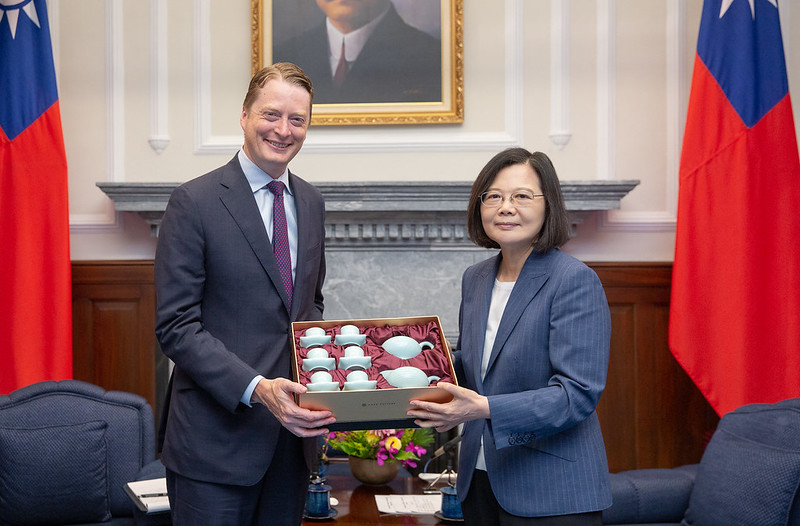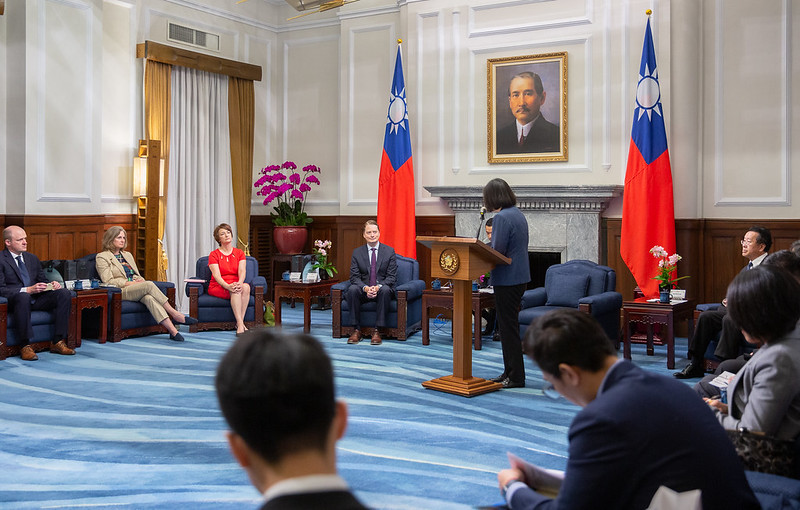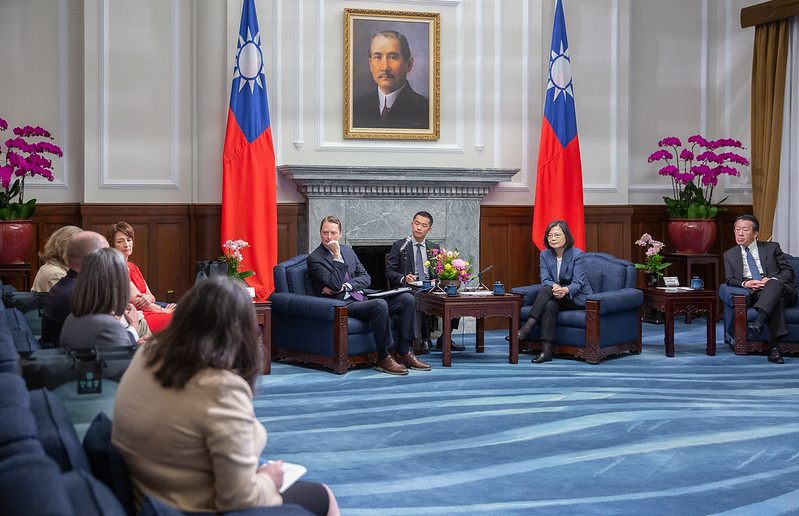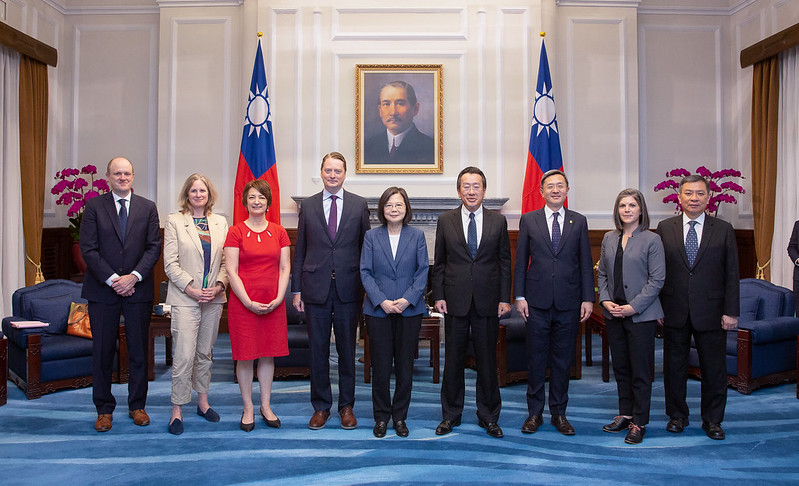News & activities
 News releases
News releases
On the morning of August 15, President Tsai Ing-wen met with scholars and experts from the Brookings Institution. The president thanked the delegation for their longstanding attention to relations between countries in East Asia, for regularly providing recommendations on Taiwan's security and Taiwan-US relations, and for helping the international community appreciate the importance of security across the Taiwan Strait and throughout the region. President Tsai said that she looks forward to our countries using a variety of dialogue mechanisms to continue deepening economic relations and ensure the security of global supply chains. She also stated that Taiwan will continue to fortify its national defense capabilities and collaborate with the US and all other democratic nations to safeguard the values of freedom and democracy while promoting regional development and prosperity.
A translation of President Tsai's remarks follows:
I am delighted to see you today, Mr. [Ryan] Hass [director of the John L. Thornton China Center and the Chen-Fu and Cecilia Yen Koo Chair in Taiwan Studies at the Brookings Institution], as you once again lead a delegation to Taiwan. You and all of the scholars gathered here know Taiwan very well, and I believe that under your guidance, the Brookings Institution will gain an even deeper understanding of Taiwan.
The Brookings Institution, an international think tank with global influence, has long paid close attention to relations between countries in East Asia. Its research and analysis on the situation across the Taiwan Strait are highly regarded around the world. I want to take this opportunity to thank you not only for visiting Taiwan but for regularly providing recommendations on Taiwan's security and Taiwan-US relations. Your contributions have strengthened cooperation between Taiwan and the US and helped the international community appreciate the importance of security across the Taiwan Strait and throughout the region.
Thanks to our advantages in the high-tech and semiconductor industries, Taiwan plays a key role in global supply chains. Facing the expansion of authoritarianism, democracies must work closely together to build secure and resilient supply chains.
As you might be aware, the first agreement under the Taiwan-US Initiative on 21st-Century Trade was signed in June, representing a new milestone in Taiwan-US economic relations. In addition, we are pursuing an avoidance of double taxation agreement, which we hope will provide a more favorable investment environment for both sides. We look forward to using a variety of dialogue mechanisms to continue deepening Taiwan-US economic relations and bolstering cooperation in such areas as digital trade, science, and technology to ensure the security of global supply chains.
Taiwan will also continue to fortify its national defense capabilities and collaborate with the US and all other democratic nations to safeguard the values of freedom and democracy while promoting regional development and prosperity.
In closing, I once again welcome Director Hass and the delegation. I look forward to exchanging views with you to further advance the Taiwan-US friendship.
Director Hass then delivered remarks, thanking President Tsai for her warm welcome and for taking the time to share her thoughts, insights, and expertise with them. He said that the Brookings Institution delegation is visiting Taiwan this week to better understand the opportunities and obstacles to strengthening Taiwan-US technology cooperation.
Director Hass pointed out that their visit comes at a time when Taiwan-US relations are strong, healthy, and growing. Our two peoples, he added, are bound together by shared interests and values that are enduring. The director stated that his delegation came to Taiwan to listen and to learn, and that they want to better understand perspectives from Taiwan on continuing to grow our relationship in line with the Brookings Institution's longstanding tradition of non-partisanship and independence.
The delegation also included Director of the Center for East Asia Policy Studies Mireya Solís; Associate Professor of Government at Dartmouth College Jennifer M. Lind; Director of the Artificial Intelligence and Emerging Technology Initiative Chris Meserole; Fellow in the Foreign Policy program's Strobe Talbott Center for Security, Strategy, and Technology Melanie W. Sisson; and Assistant Director of the Center for East Asia Policy Studies Jennifer Mason.












